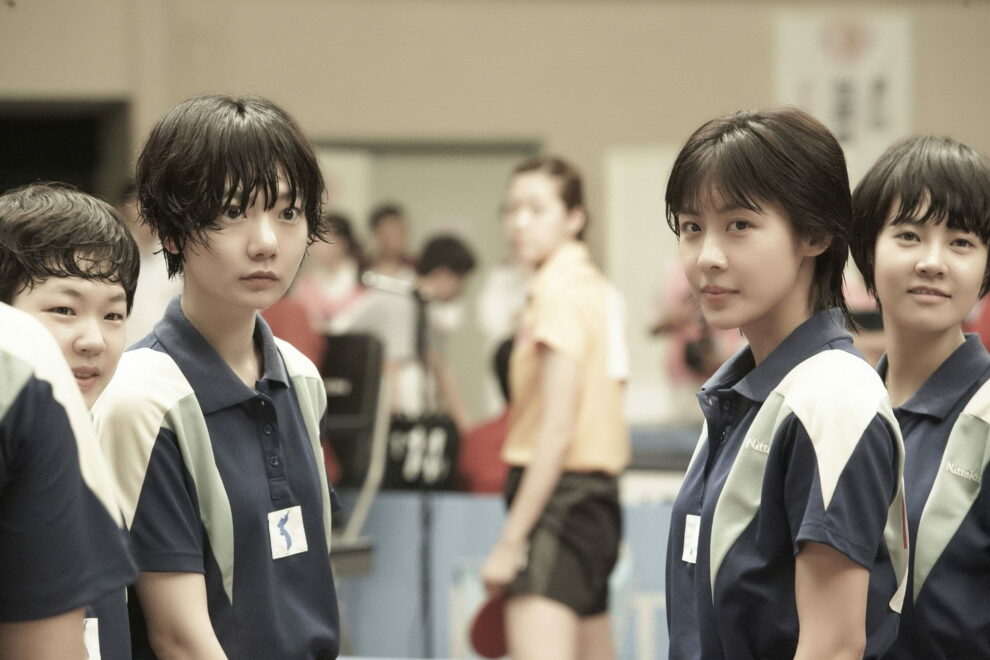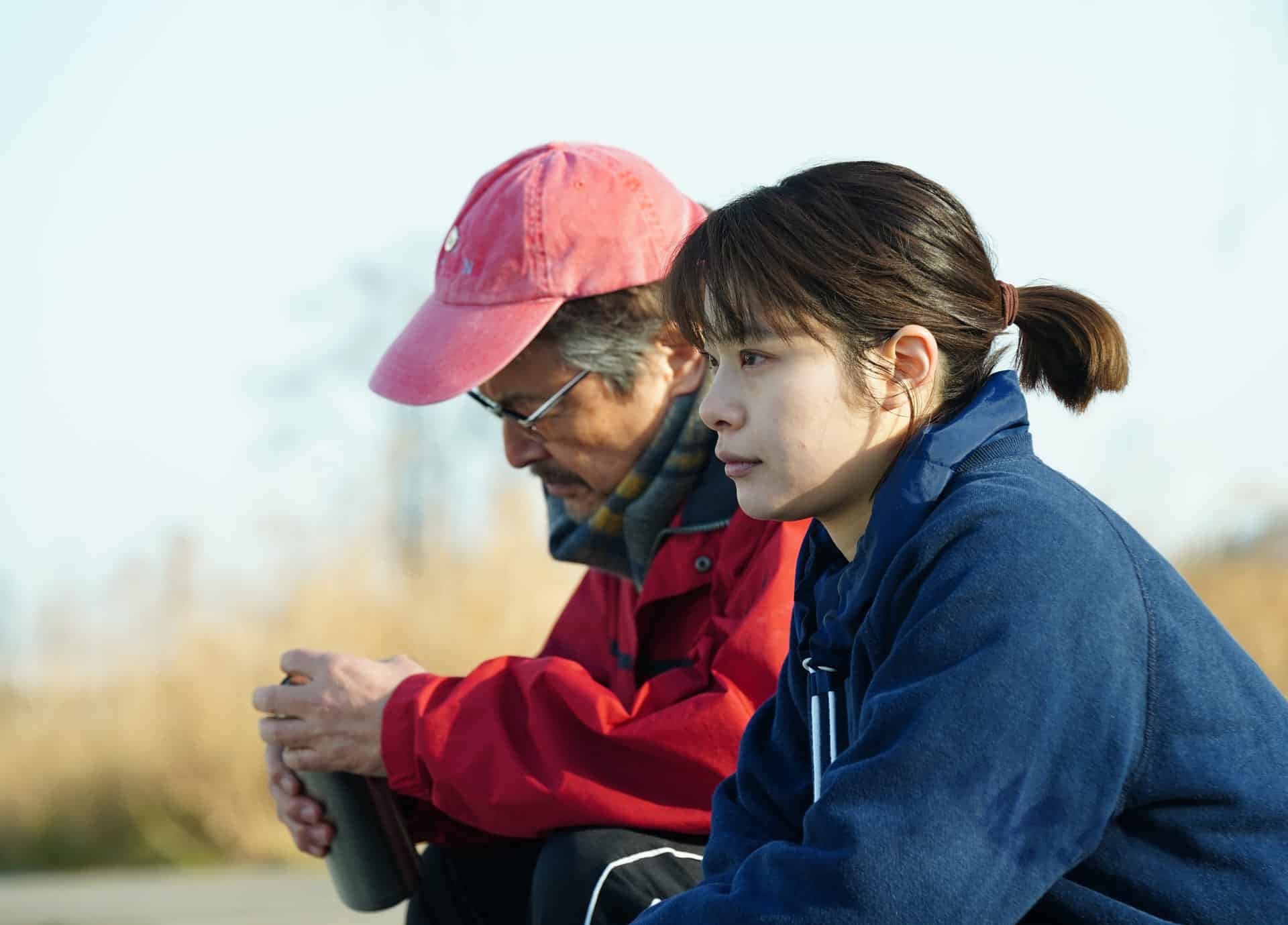Following the North Korean mid-air bombing of Korean Air Flight 858 in 1987, a Summit was held between North and South Korea to defuse the extreme tension on the Korean peninsula. The summit ended with the agreement to hastily form a unified Korean sports team; and table tennis, being highly visible and world-class in both countries, was chosen as the symbolic unifier. Summarily, the first-ever unified North-South team under the simple aegis “KOREA” was formed to compete in the 1991 World Table Tennis Championships in Chiba, Japan. Based on this story, Moon Hyeon-seong comes up with a movie about how the two teams came together, the difficulties they faced and how they managed to triumph in the end.
As One is screening at Black Movie

The movie begins in Beijing in 1990, when North Korea's captain Ri Bun-hui faces off against South Korea's captain Hyun Jung-hwa and loses. At the final, however, the latter loses the gold from China's Deng Yaping, in a situation that seems to have become the standard in the sport. Six months later, in Busan, as the South Korean team are finishing their preparation for the 41st World Table Tennis Championships, their coach, Lee, announces that the North and South Korean teams will compete as a single unit for the first time, under a newly designed Korean Unification Flag and with a North Korean, Jo Nam-poong, being the head coach. Their joint training starts a bit later in Chiba, and the tension is palpable, instigated by the ever present North Korean ‘security' team, and the differences in mentality, with the iron discipline of the North coming in direct clash with the loser approach the South implemented to that point.
In the meantime, Jung-hwa shares a room with fellow player Choi Yeon-jung who fancies notrh Korean Kyung-sub, while Bun-hui rooms with Yu Sun-bok who suffers badly from competition nerves. Eventually, and mostly through clashes, the two groups manage to come closer together just before the games, but a number of issues jeopardize their progress.
Moon Hyeong-seong directs a film that is set as an underdog story, as it is quite common in sports films, although the way he manages to establish his protagonists as such is quite interesting. It is not just that China was (is actually) all powerful in the sport, but also the fact that the members of the joint team have to overcome their mistrust and dislike for each other in order to become a proper team. This last part is actually the most interesting and essentially the main aspect of the narrative.
Young Northern hothead Choi Kyung-sub who immediately clashes with Souther joker Oh Doo-man set the tone, which is even more heightened with the initially silent, but eventually quite vocal clash of the two coaches, who is cemented in a drinking contest.. The rather one-sided romance between Yeon-jung and the aforementioned hothead cements this aspect, which moves mostly into comedic territory in the beginning. As the two groups start getting closer together by learning each other's issues, drama becomes an integral part, chiefly represented by the two captains, with their antithesis and eventual friendship being one of the best traits of the movie.
This quality owes a lot to the acting, with Bae Doona as Bun-hui and Ha Ji-won as Jung-hwa giving impressive performances, highlighting their similarities and the way they eventually realize the fact in the most impressive fashion. This ‘coupling' is actually a main ingredient of the narrative, benefitting the most by the characterization. In that fashion, Lee Jong-suk as Kyung-sub is placed “against” Oh Jung-se as Oh Doo-man, while Choi Yoon-young as Yeon-jung against Han Ye-ri as Yu Sun-bok, with the issues the girls face and the fact that both number two have to give their place to someone from the opposite side being one of the most intriguing aspects of the movie. That some of the most beautiful and charismatic actresses of the country foster bob cuts that look almost funny detracts nothing from their presence, with the acting and casting emerging as two more traits of the film.
Probably the most impressive element in the film though is the presentation of the sport itself, whose speed and overall setting appears to be quite cinematic. DP Jo Dong-heon captures the whole thing in the most impressive fashion, in an approach that is both realistic and exciting, with Kim Sun-min's editing also finding its apogee in these scenes. The slow motions work quite well as much as the SFX while the movement of the girls is ideal, even if the sweating part is somewhat overdone.
Expectedly, the presentation of the Chinese as villains (and the Japanese as insignificant) borders on the ridiculous, as much as the heroism of the Koreans which inevitably crosses to melodramatic territory, particularly close to the end. On the other hand, Moon retains some balance between the South and the North, in an aspect that benefits the movie significantly, even if the former are highlighted as the catalysts for the win in multiple levels.
“As One” is definitely a feel-good film, with the charisma of the protagonists, the presentation of the sport and the clash, bonding and triumph of the main arc making the movie quite easy to watch.
















